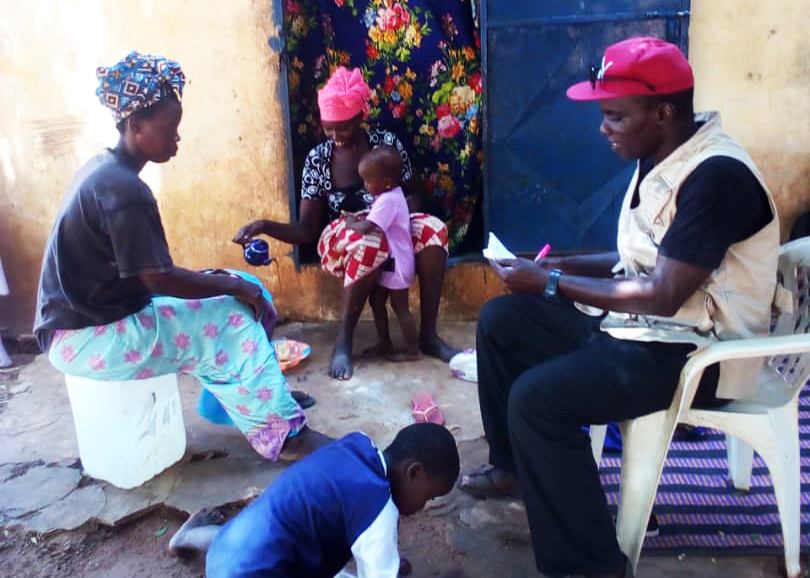
A Cancer Registry project in Jamaica is among 16 new projects to receive funding from the Bloomberg Philanthropies Data for Health Initiative Global Grants Program. Jamaica is the first Anglo-Caribbean partner under the Data for Health Initiative, joining grantee countries from Africa, Asia, Eastern Europe and Latin America.
Jamaica’s Ministry of Health and Wellness will use the funding to strengthen cancer surveillance. By improving routine cancer data collection and reinforcing existing IT infrastructure to enable nationwide data collection and reporting by the National Cancer Registry of Jamaica, the country will gain a more complete understanding of cancer prevalence.
Launched in March of 2019 to support countries with concrete commitments to improve public health through targeted investments in data availability and use, the Global Grants Program has contributed to health systems strengthening, data for policymaking and cancer surveillance around the world. Administered by Vital Strategies, it is currently in its seventh round of funding. The program has already successfully supported more than 80 projects in 41 countries, on civil registration and vital statistics, data use, and cancer registration.
In this latest round of funding, Vital Strategies is on target to work with 16 more projects. In addition to Jamaica’s cancer surveillance program, this round will support:
Civil Registration and Vital Statistics (CRVS)
Laos, South Sudan, Nigeria, Mali, El Salvador, Cook Islands, Tuvalu, Georgia, and Turkey have all committed to strengthening their CRVS systems. Projects focus on improving quality of cause-of-death data, integrating verbal autopsy within health information systems, and strengthening the collection and use of maternal, neonatal and perinatal death data for decision-making.
- Tuvalu’s team at the Ministry of Health, Social Welfare and Gender Affairs and Georgia’s team at the National Center for Disease Control and Public Health are working to improve the quality and availability of cause-of-death data to inform public health decision-making. Collectively, their projects incorporate a range of approaches, including: strengthening training for medical certification of cause of death; improving mortality coding capacity; and assessment and reclassification of unusable cause-of-death data. The team in Turkey, scaling up work from Round 6, will continue to improve cause-of-death reporting in a conflict zone in northern Syria.
- The workplans of Mali, Nigeria and South Sudan each include a strong gender equity focus. The National Institute of Public Health in Mali is continuing efforts to improve birth registration and perinatal death data at the community level. The team in Nigeria will work on generating and using maternal and neonatal mortality data to improve policy action to reduce perinatal deaths. And in South Sudan, partners at the Ministry of Interior will conduct a comprehensive country assessment of business processes across it’s CRVS system with the goal of developing a gender-sensitive legal framework.
Cancer remains the second-leading cause of death globally. The Data for Health Initiative’s Cancer Registries Program works with ministries of health to establish, strengthen, and expand population-based cancer registries and use the data for policymaking. In addition to the project in Jamaica described above, the National Cancer Control Program in Cote d’Ivoire is also working to strengthen cancer registration and data processing in Bouaké, the country’s second largest city, in an effort to ensure more equitable cancer control policy formation.
Five proposals, from Burkina Faso, Cape Verde, Liberia, Nigeria and Paraguay, all aim to improve the use of data for decision-making.
- The team at the Burkina Faso Ministry of Health will work on developing and refining dashboards to monitor and track progress in noncommunicable diseases. With this information, the government can assess the need for services and improve performance in primary care settings across the country. The National Institute of Public Health in Cape Verde, building on work in previous rounds, will create a community of practice for the sustained dissemination of public health bulletins.
- Several data use projects focus on gender and health. In Paraguay, the Ministry of Health and Social Welfare has committed to a proposal focused on using injury data from motor vehicle crashes and violence to design comprehensive prevention strategies to safeguard health and well-being across the country. In Liberia, a team from the University of Liberia School of Public Health, College of Health Sciences will conduct a quality assessment of sexual and reproductive health indicators to generate evidence about abortion and post-abortion care. And a team from the Institute of Human Virology in Nigeria will collate and disseminate data on stillbirths to promote policy change for antenatal and obstetric care.
The Global Grants Program is proud to welcome this new cohort of partners. The range of projects they represent, and the potential impact is impressive. We congratulate all our new partners in this seventh round of funding and look forward to working with each of the teams.
Get Our Latest Public Health News
Join our email list and be the first to know about our public health news, publications and interviews with experts.
About the Vital Strategies Global Grants Program
The Vital Strategies Global Grants Program is part of the Bloomberg Philanthropies Data for Health Initiative. The Global Grants Program provides funds to government partners, through a competitive process, to implement projects that improve systems to collect, analyze and use data for public health decision-making. Learn more about the program at www.d4hglobalgrantsprogram.org. For questions about the Global Grants Program, please contact GGPInfo@vitalstrategies.org.
The Data for Health Initiative is a global effort supported by Bloomberg Philanthropies. It provides technical assistance to partner countries worldwide to improve public health data systems at the national level, including improving civil registration and vital statistics systems, maximizing the use of data to enhance public health policymaking and decision-making, establishing and strengthening national cancer registries, and more. Vital Strategies serves as an implementing partner.